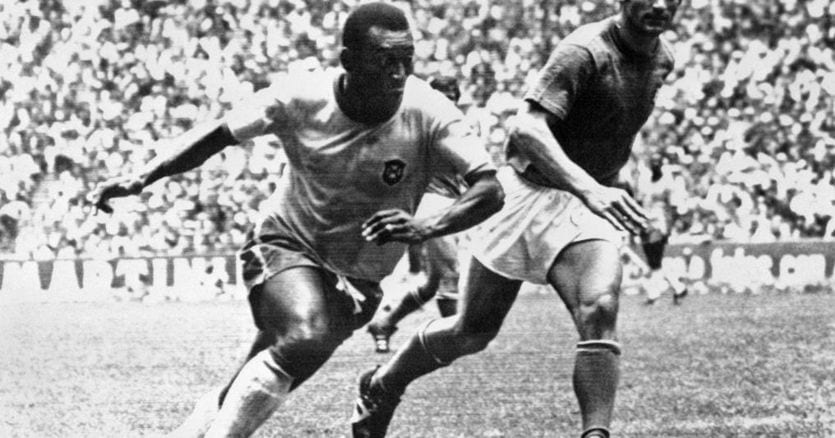Pele died. The news was in the air, but it makes an impression just to say it, and to write it. Because Pele – who died at the age of 82 after a long illness – has been a myth since time immemorial. Because Pele, even for the millennials who play on Tik Tok, has always existed. Like Garibaldi, Michelangelo, Charlemagne, Leonardo da Vinci, Julius Caesar, Mozart, Tolstoji and a few other magnificent ones in history. A Homeric God, a precious piece of humanity, the redemption of the poor, the talent that has no price but only value.
Since we were born we have been told that no one is as good as Pele, strong like Pele, great like Pele. Not even Maradona, always compared to him, holds the comparison. Because Diego, as well as in splendor, we have seen him fall into the darkest whirlpool of drugs and loneliness. Pele never. Even in his old age, even when he was ill, Pele has always been Pele, the most famous disyllable of football and sport. And he will be later too. A funeral and exhausted tears. When will we all finish celebrating and regretting him because cancer took him away at the age of 82, not caring that he was O Rei.
It does not matter. Pele will always be Pele, the best ever and forever.
An unpopular nickname
Life is curious. Edson Arantes do Nascimento, born on October 23, 1940 in Très Coracoes in Brazil, had never liked that nickname, Pele. Especially when he was a boy and he was skinny as a nail and with maggots in his belly. Mom was a laundress. He helped her by hanging out the laundry and as a shoe shiner, but then he ran off into the street to play soccer with the other boys. He was shy but already very good with those balloons made of paper, rags and socks. «They called me Pele and I didn’t understand why. I didn’t understand if they were making fun of me or they wanted to say something else. I don’t know, but it bothered me. Only later, when I became rich and famous, did I begin to accept it…».
Pele was poor. And also black. Double bad luck in a poor, very poor nation, where black people didn’t open doors, on the contrary; in the Fifties, racism in Brazil was practiced law. To the point that it wasn’t good to let a black player join the national team. At Santos, when he arrived at 16, they accepted him because they immediately understood that he was a phenomenon. Thin, plucked, with lost eyes and escaped from poverty. They had fed it, groomed it, cleaned it, and greased it. Even his teeth were rotten. He ate trash, candies, rotten fruit. What was in the house or on the street. At Santos they revive him for the second time. But when, now famous for his prowess, he is sent to the World Cup in Sweden in 1958, many Brazilians of the good middle class turn up their mouths.
The redemption of Brazilian blacks
“You’ve never seen a Negro represent our flag…”, they scoff with haughtiness after traveling first class across the ocean to enjoy the spectacle of the World Cup in Europe. Already there was Garrincha, described by the psychiatrist as “intellectually deficient and childish”, let alone this newcomer. So Pele doesn’t play at first. He is left out. But the cariocas don’t mesh. And then, to give a jolt, against the Soviet Union, Pele is inserted.
